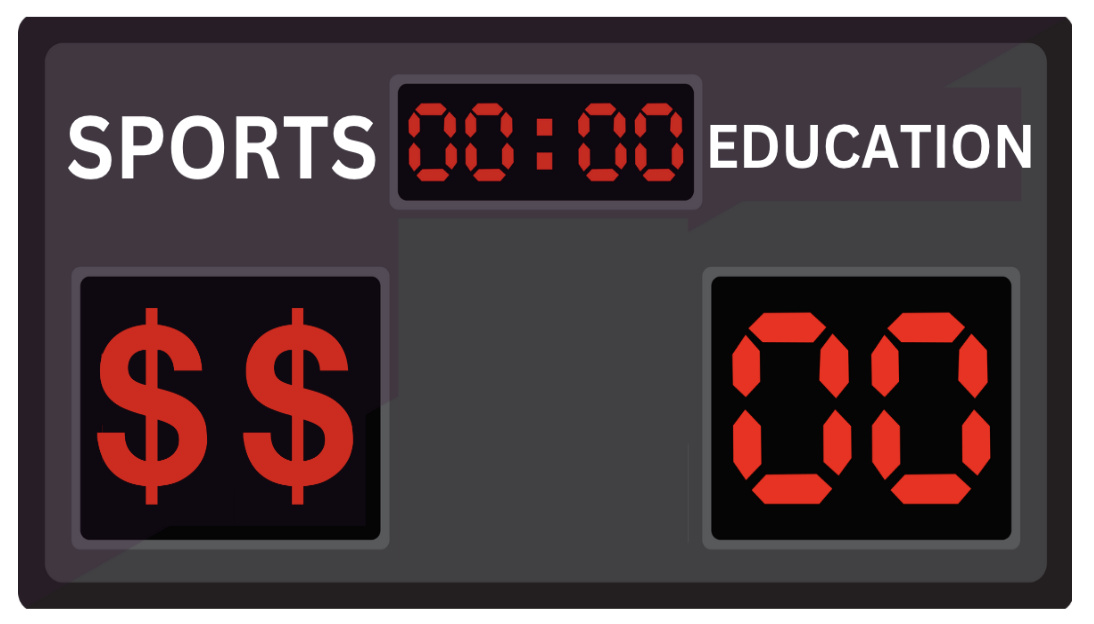Over the past few years, one thing has become pretty clear: the games on the court that I grew up watching have turned into the games of capitalism. It’s time we call a time-out.
On Aug. 31, 2021, California passed a bill to allow high school athletes Name, Image, Likeness (NIL) rights. We were the first state to do so, and unfortunately, 30 other states have followed.
Name, Image, Likeness (NIL) rights are historically meant for college athletes. They describe the ways in which college athletes can get compensated by ranking athletes based on popularity and social media followings. The National Collegiate Athletics Association (NCAA) rules prevent schools from paying players directly – meaning coaches cannot offer money as a form of recruitment, and athletes can’t receive compensation directly from their schools based upon their athletic abilities. NIL rights became a loophole for athletes to get paid without being considered “professional” athletes who make money playing their sport.
These deals originated in 2021 when the Supreme Court unanimously ruled in NCAA v. Alston that the NCAA was not allowed to limit benefits to student-athletes, creating payment opportunities through advertisements, public appearances or promotions. These deals have been heavily controversial, causing debates around the effectiveness of paying student athletes to the issues of equality around who these deals mainly target.
But I want to reduce all the controversy to one question: have sports become about merit or money? Whoever’s reading this might not be able to shoot a 3-pointer, but I’m sure even they can guess the 3 points of my advocacy that point to why these deals are flawed.
Principally, NIL deals exploit athletes. It’s not just through confusing contracts that trick 14-year-olds into signing their lives away; these deals are bad because they’re inherently biased.
When big names like Bronny James are getting deals off of their dads and female stars like Livvy Dunne start selling bikini pics for NIL clicks, we can see that the system is exploitative. It’s disgusting to push the same burden onto high schoolers, especially when the money is going to those with privilege, connections, and generational funds rather than those who need it most.
Taking a look at the opinions of the college system in the status quo, 70% of US adults wish they could pay athletes directly to protect them from agents who care about profit over people.
The impacts of this exploitation further detriment the system. When these NIL deals get thrown into high schools, we give schools a choice: find more money to buy athletes into your school or just start shutting down in sports and education. Neither side wins.
These deals have turned athletes into investments: current college NIL deals have taught us that having famous alumni and good facilities attracts more students. Schools start investing in facilities because sports become the sole program that makes them money. That’s how LSU spent 28 million on locker rooms.
In the long-term, this increases funding, donations, and in the case of public high schools, taxes in your area that get re-directed into your school, worsening the gap between Title 1 high schools and those in areas littered with money.
When the only thing that matters is how deep their pockets are, small schools are forced to find more funding to stop bigger schools from stealing their best athletes, compensating by declining academics and buying balls instead of books.
But athletes don’t need this extra income. As I’m writing, the NCAA is creating a policy that pays minimum wages to college athletes. Why push these exploitative deals and heavy burdens of making money onto high schoolers when they can just wait four years?
I’ve been playing tennis, lacrosse and I sail over the summer, but even I can’t play with the weight of tearing up the next generations by supporting deals that destroy students, academics, and athletics. Game time is up – it’s time to advocate against high school NIL deals.



Liz Babb | Jun 1, 2024 at 11:43 am
I completely agree Emily! You should call out our State representatives who voted for NIL law. We have to stop rewarding our representatives by voting them back in time and again. This law needs to be changed.
Alex | Jan 30, 2025 at 5:14 pm
Im a highschool athlete and i’ve been in a cross country camp since I was in 5th grade. I agree with this, although many athletes don’t have enough time to work